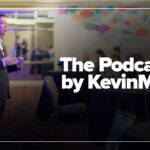Oncology has long been described as a discipline ruled by biology. Tumor pathways, mutational signatures, margins, and survival curves dominate how we measure, categorize, and predict outcomes. We are taught early in training that tumor biology is king, and much of our decision-making revolves around this truth. Yet, after years of practicing surgical oncology in India, I have learned that biology alone rarely determines the fate of my patients. Culture often does. And too often, culture has the final word.
I still remember one patient vividly, a respected village elder whom I will call Bapu. He came to us with advanced oral cancer. The surgery was extensive, recovery was painful, and chemotherapy was grueling. Through every step, he trusted us completely. His resilience inspired not only his family but our entire team. And then came the final, most crucial step, radiation therapy. Science told us it was essential, a non-negotiable part of his cure. But society whispered otherwise. “Radiation will burn you.” “You will lose what little strength remains.” “Better to leave it to fate.” In the end, the community’s voice drowned out medical counsel. Bapu, who had trusted us with a knife at his throat, turned away from the machine that could have secured his cure. Months later, his cancer returned, angrier, hungrier, and unforgiving. That was the day I realized that biology may be king, but culture is queen, and in too many parts of the world, culture checkmates biology.
The challenge does not end with culture. In today’s digital age, misinformation metastasizes faster than any tumor. WhatsApp forwards warn that sugar feeds cancer. Neighbors advise against surgery, claiming it will cause the cancer to spread. YouTube videos promise miracle cures with herbs, magnets, or diets. I have lost patients not to recurrence but to rumors, not to disease but to doubt. Families withdraw consent for treatment minutes before incision because of something they heard the night before. This is the silent stage IV of cancer care: the malignancy of misinformation. It does not appear on scans. It does not get staged in TNM. Yet it kills, silently and systematically, eroding trust at its very root. Unless we treat it with the same seriousness that we treat tumor biology, we will continue to lose patients, not to disease progression, but to myths.
This paradox plays out most starkly in low- and middle-income countries, where the gap between science and society is wide. At global oncology forums, discussions often revolve around immunotherapy, precision diagnostics, and artificial intelligence. These are extraordinary advances that inspire hope. But in many regions of the world, patients do not falter because a checkpoint inhibitor is unavailable. They falter because stigma, fear, and misinformation prevent them from completing even the most basic treatment continuum. In high-income countries, the question may be which targeted drug is most effective. In LMICs, the more urgent question is whether the patient will even complete radiation, whether they can travel to the hospital, or whether they will default because of a WhatsApp forward.
Cancer outcomes are ultimately shaped by three overlapping forces: biology, culture, and systems. Biology tells us how aggressive the disease will be. Culture dictates whether the patient will trust or resist treatment. Systems determine whether the infrastructure, workforce, and affordability exist to deliver care. Global oncology cannot be truly global if it focuses only on the first and ignores the other two. A tumor’s genetic profile may be studied in exquisite detail, but if the patient never arrives for therapy, it becomes an academic exercise.
If oncology is to close the global care gap, we must expand our focus. We must train doctors not only to interpret PET scans and molecular markers, but also to counsel patients with cultural sensitivity and empathy. We must invest in patient navigation systems that ensure continuity of care, particularly in rural settings where a single counselor can mean the difference between abandonment and adherence. We must treat misinformation as a public health crisis, countering pseudoscience with the same urgency as tobacco control campaigns. And we must celebrate the invisible heroes (nurses, social workers, and counselors) who often do more to build trust than any advanced diagnostic machine.
Global oncology today stands at a crossroads. Precision medicine, AI, and immunotherapy promise a future of remarkable advances. But for millions of patients worldwide, the decisive factors are still myths, stigma, and misinformation. The cancer cell may divide in silence, but so do rumors. Both metastasized. Both kill. Bapu’s story taught me that curing cancer is not only about conquering biology but also about confronting belief. Unless we address the silent stage IV of misinformation and the cultural dynamics that undermine science, we will continue to win surgical battles but lose societal wars.
The future of oncology will not be decided in journals alone. It will be decided in the stories communities tell, in the trust they place, and in the myths they overcome. Tumor biology may be king, but culture is queen. And if we are to save lives across the globe, we must learn to play this game of chess with both science and society.
Bhavin P. Vadodariya is a surgical oncologist in India.





















![AI censorship threatens the lifeline of caregiver support [PODCAST]](https://kevinmd.com/wp-content/uploads/Design-2-190x100.jpg)

